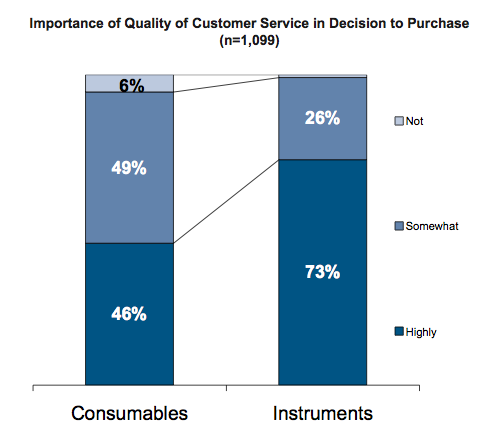Customer Service and Technical Support—Everyone’s Issue
Me Tarzan, you Jane. Pretty basic, right? Not exactly. According to Psychology Today, recognizing oneself as an “other” from everything else requires one of the most “sophisticated aspects of consciousness”—self-awareness. Apparently, only humans, dolphins and some kinds of apes can look in the mirror and recognize that they are looking at a “self.”
Know thyself
On occasion, we like to ask our scientists about specific companies: “If Supplier XYZ were a person, what would he/she be like?” Elegant and classy? Casual and hip? Warm and friendly?
In other words, if you propped your company up in front of a mirror, would you recognize yourself? Self-awareness applies not only to individuals, but to organizations as well.
Sometimes, it takes a third party point-of-view to validate that a company is projecting the image it thinks it is. (We’re quite good at that, by the way.) But whatever your image may be, it goes without saying that you don’t want researchers to see you as the industry curmudgeon. Or control freak. Or, worst-case scenario, the guy whose name nobody knows.
This may sound obvious—and it is, of course. The hard part is enrolling all the different parts of your organization in the concept of presenting a consistent personality to your customers.
The customer service experience
Nowhere in a company is this more critical than in the customer service and technical support departments. And not just because they do most of the talking. Simply put, customer service and technical support reps are often talking to customers in bad moods.
And the synergy between a frustrated scientist and a non-responsive customer service department has dire consequences. Take a look at how that’s cleverly portrayed in this Ally Bank commercial.
It’s not news that labs factor in the quality of customer service and technical support to make their purchasing decisions. But did you have any idea how significant of a role these departments play in the decision to purchase an instrument or consumables?
And it gets worse. Once a researcher has taken umbrage with how he or she has been treated, their likelihood to recommend you to a colleague goes down. Way down.
If you’re looking for guidance as to how to better align your service departments with customer expectations so that scientists will continue to buy from you and recommend you to their friends, check out our 30 Day Deal for February.
If YOUR company was a person, how would you describe it? What about some of the other suppliers…what would they be like? Leave us a comment.






